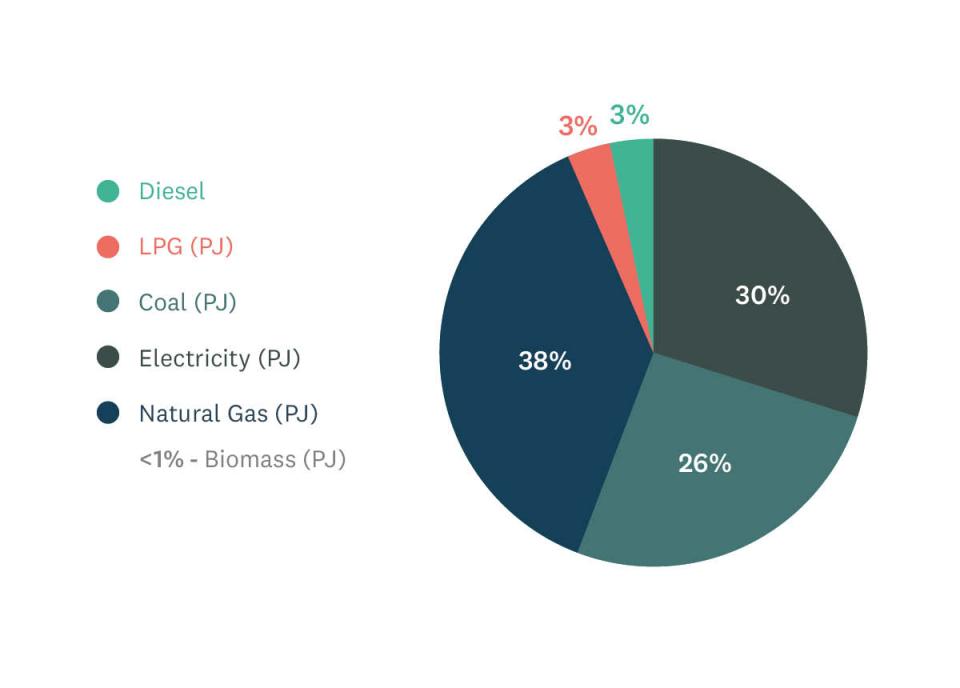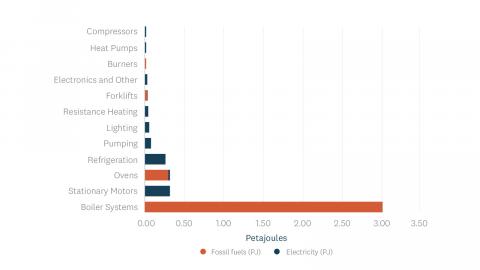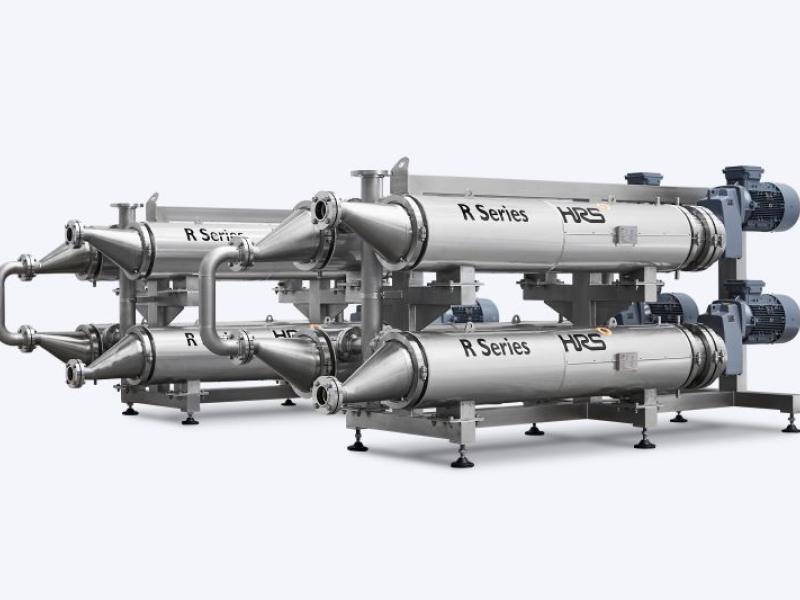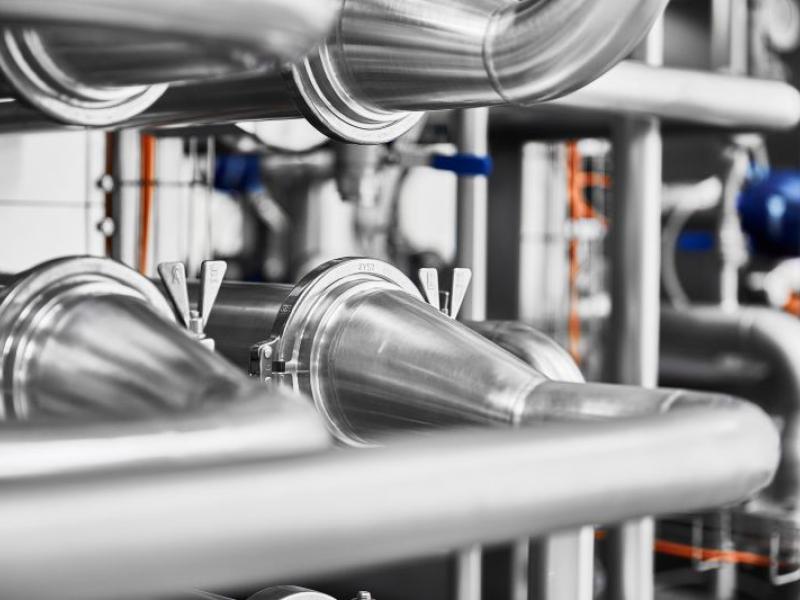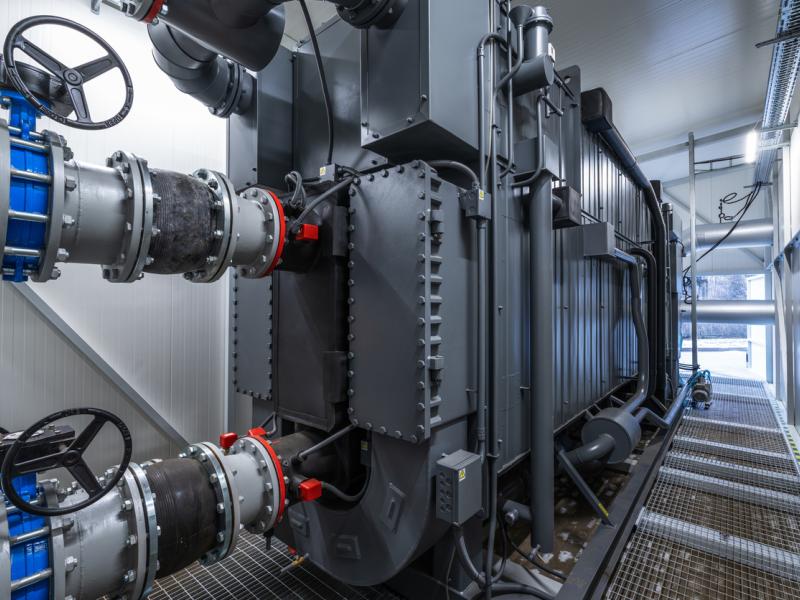Courtesy EECA
New Zealand’s food product manufacturing sector is diverse and a large user of energy across different processes. However, to date, information about its energy consumption has been limited. Understanding its energy use better, is key to decarbonising the sector.
You can read the full report here
To support the development of an evidence base EECA commissioned Lumen to carry out bottom-up research on stationary energy use in food and beverage manufacturing.
Sector decarbonisation
Businesses account for around 40% of New Zealand's energy-related emissions, so they represent a big opportunity for decarbonisation.
Our Sector Decarbonisation Programme collaborates with sector associations and technical experts to connect New Zealand businesses with world-class innovation and best practice guidance to decarbonise at a sector level.
The programme also provides new businesses with best practice knowledge when they enter the sector.
EECA has produced decarbonisation pathways for the covered cropping and brewing sectors: this study was used in the development of the brewing sector pathway, and will be used for future pathways within the food and beverage manufacturing sector.
Key insights: fuel use
The study found that, in common with most New Zealand industries, the sector is reliant on fossil fuels for process heat. While there is some movement to measure and reduce emissions, there are significant barriers. However, the study also identified some key opportunities for manufacturers.
- The majority of the stationary energy used in the sector comes from fossil fuels (64%) to power boiler systems which provide process heat. Most of the energy end-use is for intermediate temperature process heat.
- 42% of the energy within the survey cohort is from natural gas, 33% from coal and 22% from electricity.
- Energy extrapolated to the national level shows that 38% comes from natural gas, 26% from coal, and 30% from electricity.
Total sector energy consumption by fuel
This estimate was derived from extrapolating the primary energy data collected through the user survey (4.3PJ) to create a total sector view.
When total energy consumption is extrapolated to a national level estimate, the majority of energy used is fossil fuels, in particular natural gas.
.
Energy consumption by technology
Most of the energy used in the sector is used to run boiler systems for steam generation. This is mainly used to meet intermediate temperature heat process requirements.
.
Key insights: measuring behaviour and challenges
- Only 35% of the survey cohort are currently measuring their GHG emissions
- Most surveyed organisations (91%) plan to improve their energy efficiency.
- Just over half (51%) the surveyed organisations are interested in decarbonisation.
- Reducing operating costs is the primary driver for energy efficiency and decarbonisation.
- High capital costs (27%) and practicality (product quality risk) (27%) concerns are the largest barriers to decarbonisation.
The survey results reflect there is a lot of work to be done in decarbonising processes that currently use natural gas, coal and to a much lesser degree LPG and diesel. In addition, improving energy efficiency in electricity use could also help with sector wide decarbonisation.
This suggests that fuel switching existing fossil fuel boiler systems that produce intermediate temperature heat for process requirements should be the primary focus for sector wide decarbonisation. In addition, fuel switching fossil fuel oven systems (intermediate temperature heat) should also be targeted.


